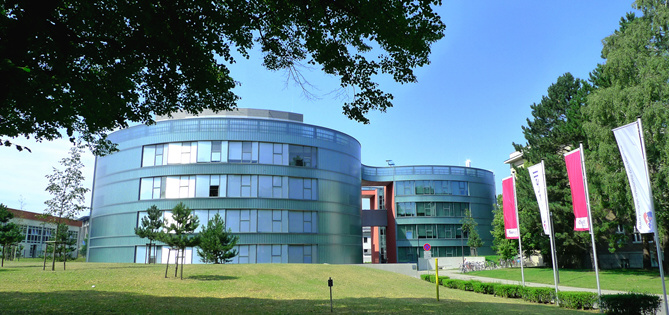Cancer Res. 2003; 63:2737-2741.
p73 is effective in p53-null pancreatic cancer cells resistant to wild-type TP53 gene replacement.
Rödicker F, Pützer BM.
Novel therapies such as gene therapy are needed for the treatment of pancreatic carcinomas. Here we show that adenovirus-mediated p73 overexpression results in a strong induction of apoptosis, whereas the effect of p53 varies between different cell lines. In particular, p53-negative AsPC-1 cells are resistant to p53-mediated apoptosis. In these cells, only ectopically expressed p73 activates the proapoptotic p53 target P53AIP1, whereas phosphorylation of p53 at Ser-46, shown to regulate transcriptional activation of P53AIP1, is missing. Our findings support the use of p73 as an anticancer drug in p53-null pancreatic cancer cells that are resistant to wild-type TP53 gene replacement.

Kontakt
Institut für Experimentelle Gentherapie und Tumorforschung
Core-Facility Virale Vektor & Genom-Editing Technologien
Biomedizinisches Forschungszentrum
Schillingallee 69
D-18057 Rostock
Sekretariat
Ingrid Winkler
(+49) 381 494-5066(+49) 381 494-5062
ingrid.winkler@med.uni-rostock.de
Department Leben, Licht & Materie
Forschungsbau LL&M
Albert-Einstein-Str. 25
D-18059 Rostock
Forschungsbau LL&M
Albert-Einstein-Str. 25
D-18059 Rostock




